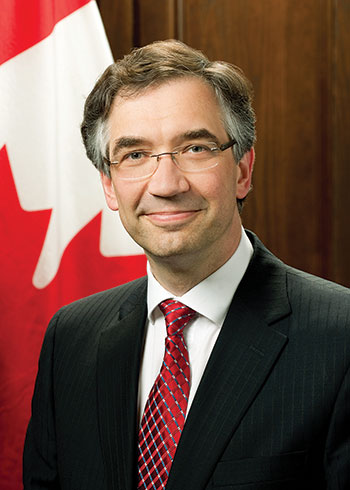OTTAWA – On the military front, not a lot has changed since Roman Waschuk became Canada’s eighth and first fluent Ukrainian-speaking ambassador to Ukraine since the country gained its independence from the Soviet Union in 1991. When he took up his post in October 2014, Russia had already annexed Crimea, and the conflict between Russian-backed militants and Ukrainian troops had begun.
Canada’s ambassador in Kyiv speaks on big expectations in and about Ukraine
By Ukrainian Weekly Editor11 Mins Read

